Sustainable Materials in Deck and Porch Construction: Eco-Friendly Choices
In recent years, the demand for sustainable materials in deck and porch construction has surged, driven by homeowners' growing environmental consciousness and desire for long-lasting, low-maintenance solutions.
Angel Sosa
2/21/20256 min read
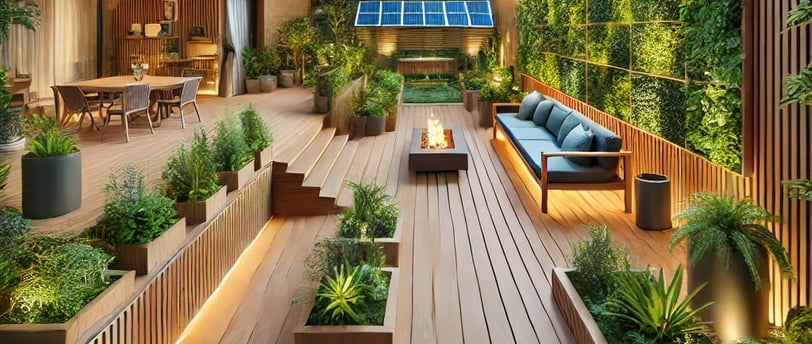

Quick Overview
In recent years, the demand for sustainable materials in deck and porch construction has surged, driven by homeowners' growing environmental consciousness and desire for long-lasting, low-maintenance solutions. Traditional decking materials, such as pressure-treated wood, while durable, come with environmental drawbacks, including deforestation, chemical treatments, and a shorter lifespan compared to newer eco-friendly alternatives. As more homeowners prioritize sustainability, innovative materials like composite decking, bamboo, and reclaimed wood have gained traction, providing both aesthetic appeal and environmental benefits.
ProDeck Solutions is at the forefront of this movement, offering eco-friendly options that not only enhance the beauty of outdoor spaces but also minimize environmental impact. Our commitment to sustainability ensures that clients in Kansas City, Lee’s Summit, Overland Park, Gladstone, and North Kansas City have access to premium, earth-conscious decking materials tailored to their needs and preferences.
The Rise of Composite Decking: A Sustainable and Durable Choice
Composite decking has become a popular choice for eco-conscious homeowners, thanks to its durability, aesthetic appeal, and sustainability. Manufactured from a blend of recycled plastic and reclaimed wood fibers, composite boards mimic the natural grain of wood while eliminating the need for frequent maintenance, staining, or sealing. Unlike traditional lumber, which requires deforestation and chemical treatments, composite decking repurposes post-consumer waste, reducing landfill waste and conserving natural resources.
Several industry leaders, such as Trex, TimberTech, and Fiberon, have embraced sustainable manufacturing practices, incorporating up to 95% recycled materials into their decking products. These brands focus on reducing carbon footprints by utilizing reclaimed sawdust, plastic bags, and other post-industrial waste, ensuring minimal environmental impact.
Key Benefits of Composite Decking:
Eco-Friendly Production: Reduces deforestation and landfill waste by repurposing materials.
Low Maintenance: Requires no staining, sealing, or painting, lowering chemical runoff.
Weather Resistance: Resists rot, warping, insect infestations, and moisture damage.
Longevity: Many composite decking products come with warranties of 25+ years.
Variety of Styles: Available in multiple colors, textures, and finishes for a customized look.
ProDeck Solutions specializes in installing high-quality composite decks, providing clients with sustainable, durable, and aesthetically pleasing outdoor living spaces.
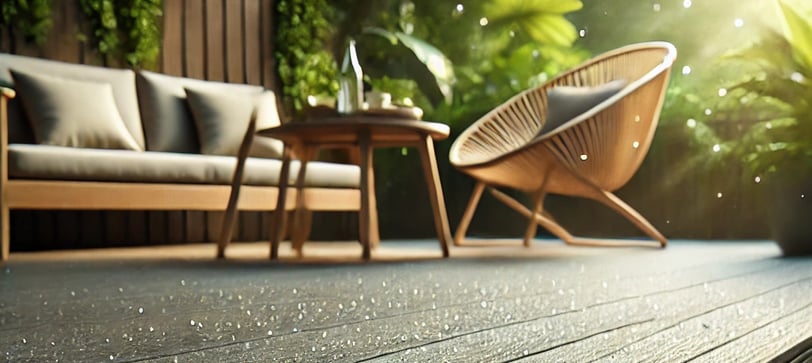

Reclaimed and Responsibly Sourced Wood: A Timeless Eco-Friendly Option
For homeowners who prefer the natural beauty of wood while maintaining an eco-conscious mindset, reclaimed and responsibly sourced lumber presents an excellent option. Reclaimed wood is salvaged from old barns, factories, and warehouses, offering unique character and durability without contributing to deforestation. This type of wood often features weathered textures, rich color variations, and natural resistance to pests due to its aged nature.
Additionally, responsibly sourced wood certified by the Forest Stewardship Council (FSC) ensures that lumber is harvested sustainably, promoting responsible forestry practices. Hardwoods like Ipe, Teak, and Mahogany, when sourced responsibly, provide long-lasting durability and a luxurious appearance while minimizing environmental impact.
Advantages of Using Reclaimed or FSC-Certified Wood:
Sustainability: Reduces demand for newly harvested lumber.
Unique Aesthetic: Offers a rustic, aged appearance with distinctive grain patterns.
Strength and Durability: Often stronger than freshly milled wood due to its age.
Reduced Carbon Footprint: Repurposing old wood prevents waste and unnecessary logging.
ProDeck Solutions provides expert installation services using reclaimed and FSC-certified wood, ensuring that every deck and porch aligns with sustainable construction principles.
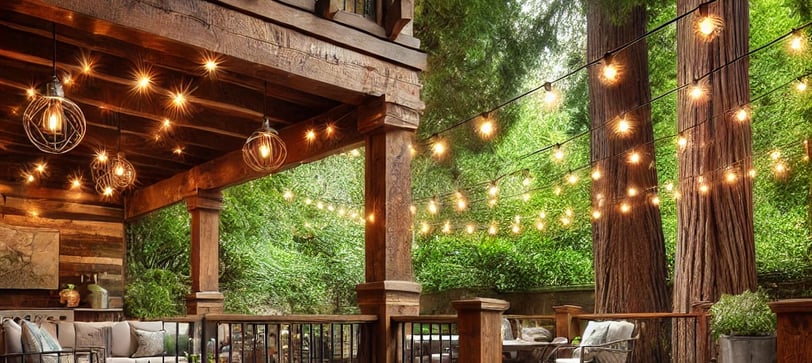

The Future of Sustainable Decking: Innovations and Emerging Trends
As sustainability in construction evolves, new materials and technologies continue to redefine deck and porch building. Innovations such as bamboo decking, recycled rubber pavers, and even bio-composite materials are gaining traction as viable alternatives to traditional options. Bamboo, for instance, grows rapidly and regenerates quickly, making it an excellent sustainable substitute for hardwoods. Recycled rubber pavers, on the other hand, repurpose used tires to create durable, slip-resistant surfaces ideal for outdoor spaces.
Emerging Eco-Friendly Decking Materials:
Bamboo Decking: Fast-growing, highly renewable, and naturally resistant to moisture.
Recycled Rubber Pavers: Shock-absorbent, weather-resistant, and made from upcycled materials.
Hemp Composite Boards: A biodegradable alternative to wood-plastic composites.
Aluminum Decking: 100% recyclable, fire-resistant, and extremely durable.
ProDeck Solutions stays ahead of industry trends by offering cutting-edge sustainable decking options tailored to homeowners’ needs in Kansas City, Lee’s Summit, Overland Park, and surrounding areas.
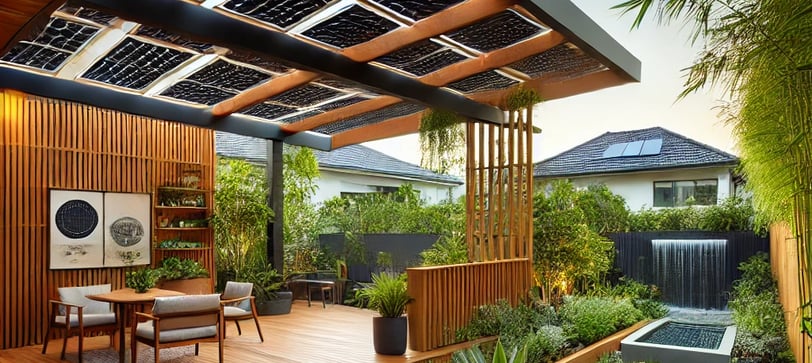

The Role of PVC-Free Alternatives in Sustainable Decking
PVC decking, while durable and low-maintenance, raises environmental concerns due to its reliance on non-renewable petrochemicals and difficulty in recycling. Many eco-conscious homeowners are now seeking alternatives that maintain PVC’s benefits without its drawbacks.
One of the leading PVC-free options is Wood-Plastic Composite (WPC) decking, which combines recycled wood fibers with high-density polyethylene (HDPE) to create a durable and aesthetically pleasing alternative. Additionally, mineral-based composite decking is emerging as an even more sustainable solution, featuring limestone-based fillers that enhance durability while reducing reliance on plastic-based materials.
Benefits of PVC-Free Decking:
Reduced Environmental Impact: Free from harmful chemicals and easier to recycle.
Comparable Longevity: Offers the same durability as PVC without contributing to landfill waste.
Aesthetic Appeal: Provides natural wood textures without the artificial feel of plastic decking.
Lower Heat Retention: Stays cooler underfoot compared to PVC and traditional composite options.
ProDeck Solutions offers a range of high-quality, PVC-free decking materials designed to meet modern sustainability standards while ensuring long-lasting performance.
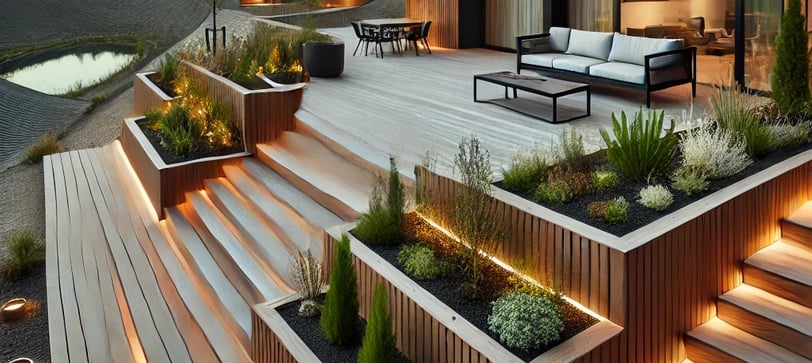

Sustainable Decking Accessories: Railings, Fasteners, and Sealants
Choosing eco-friendly decking materials is just one aspect of creating a sustainable outdoor space. The accessories used—such as railings, fasteners, and sealants—also play a significant role in reducing environmental impact. Opting for materials that are either recyclable, made from renewable sources, or free of toxic chemicals ensures that the entire decking system aligns with sustainability goals.
Eco-Friendly Railing Options:
Aluminum Railings: Highly durable and 100% recyclable.
Bamboo Railings: Renewable, naturally resistant to moisture and pests.
Composite Railings: Made from the same sustainable materials as composite decking.
Sustainable Fasteners and Hardware:
Stainless Steel Screws: Corrosion-resistant and fully recyclable.
Hidden Clip Systems: Reduce material waste while enhancing aesthetics.
Powder-Coated Hardware: Free from toxic finishes, extending longevity.
Non-Toxic Sealants and Finishes:
Water-Based Sealants: Reduce volatile organic compounds (VOCs).
Natural Oil Finishes: Such as linseed or tung oil, offering a biodegradable solution.
Soy-Based Stains: Low toxicity and environmentally safe.
ProDeck Solutions ensures that every component of our sustainable decks—from railings to finishes—meets the highest environmental standards.
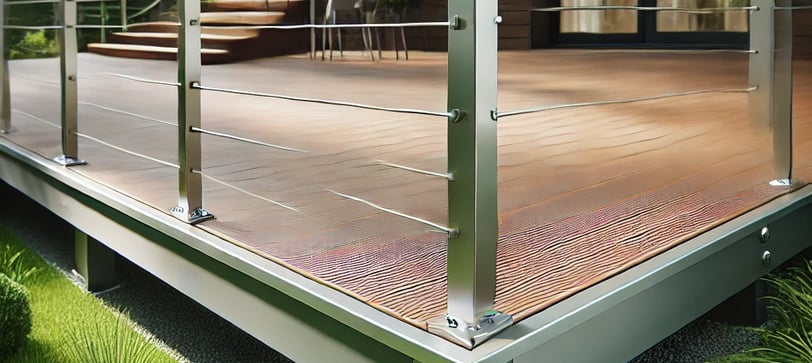

The Long-Term Benefits of Investing in Sustainable Decking
While the initial cost of sustainable decking materials may be higher than traditional wood, the long-term benefits outweigh the expense. By choosing eco-friendly materials, homeowners invest in durability, lower maintenance costs, and enhanced environmental responsibility.
Key Long-Term Advantages:
Extended Lifespan: Sustainable materials last longer than traditional wood, reducing replacement frequency.
Minimal Maintenance Costs: No need for chemical treatments, staining, or frequent repairs.
Higher Home Value: Eco-friendly features enhance property value and appeal.
Environmental Benefits: Reduced carbon footprint, less deforestation, and lower landfill contributions.
As sustainability becomes a growing priority, ProDeck Solutions is dedicated to providing innovative and long-lasting decking solutions that meet the evolving needs of homeowners.
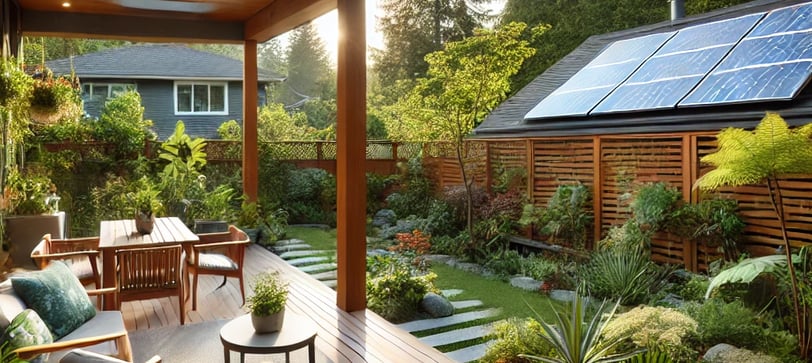

FAQs
What are the best sustainable decking materials?
The most sustainable decking materials include composite decking made from recycled plastics and wood fibers, responsibly sourced hardwoods (such as FSC-certified Ipe and Teak), bamboo decking, and aluminum decking, which is 100% recyclable.Does eco-friendly decking get hot in the sun?
Some composite decking materials may retain heat, but advancements in technology have led to cooler surface options. Materials like mineral-based composites and lighter-colored boards help reduce heat absorption.Is stainless steel considered an eco-friendly material for decking?
Yes. Stainless steel is highly durable, corrosion-resistant, and 100% recyclable, making it a sustainable choice for deck fasteners and railings.Can eco-friendly decking be installed over concrete?
Yes. Many sustainable decking options can be installed over existing concrete slabs using elevated deck framing systems, reducing waste and construction costs.How long does an eco-friendly deck last?
Composite and aluminum decks can last 25–50 years, significantly longer than traditional wood, which typically requires replacement every 10–15 years due to decay and weathering.What is the best alternative to PVC decking?
Wood-plastic composite (WPC) and mineral-based composite decking are the best alternatives, offering durability, sustainability, and lower heat retention without relying on petrochemical-based PVC.ProDeck Solutions is committed to helping homeowners choose the best eco-friendly decking materials for their needs, ensuring long-lasting beauty, functionality, and sustainability.
Final Thoughts
Sustainable decking materials are no longer a niche choice; they are the future of eco-conscious home improvement. With options ranging from composite and reclaimed wood to bamboo and recycled materials, homeowners have a variety of environmentally responsible choices that do not compromise on beauty, durability, or functionality.
At ProDeck Solutions, we are committed to providing high-quality, sustainable decking solutions that align with our clients’ values and environmental goals. Whether you’re looking for a low-maintenance composite deck or a rustic reclaimed wood porch, our expert team ensures top-tier craftsmanship and eco-friendly materials for every project. Contact ProDeck Solutions today to explore the best sustainable decking options for your home and take the next step toward a greener outdoor living space.


HOURS OF OPERATION
Mon - Fri: 9:00AM - 5:00PM
Sat & Sun: Closed
